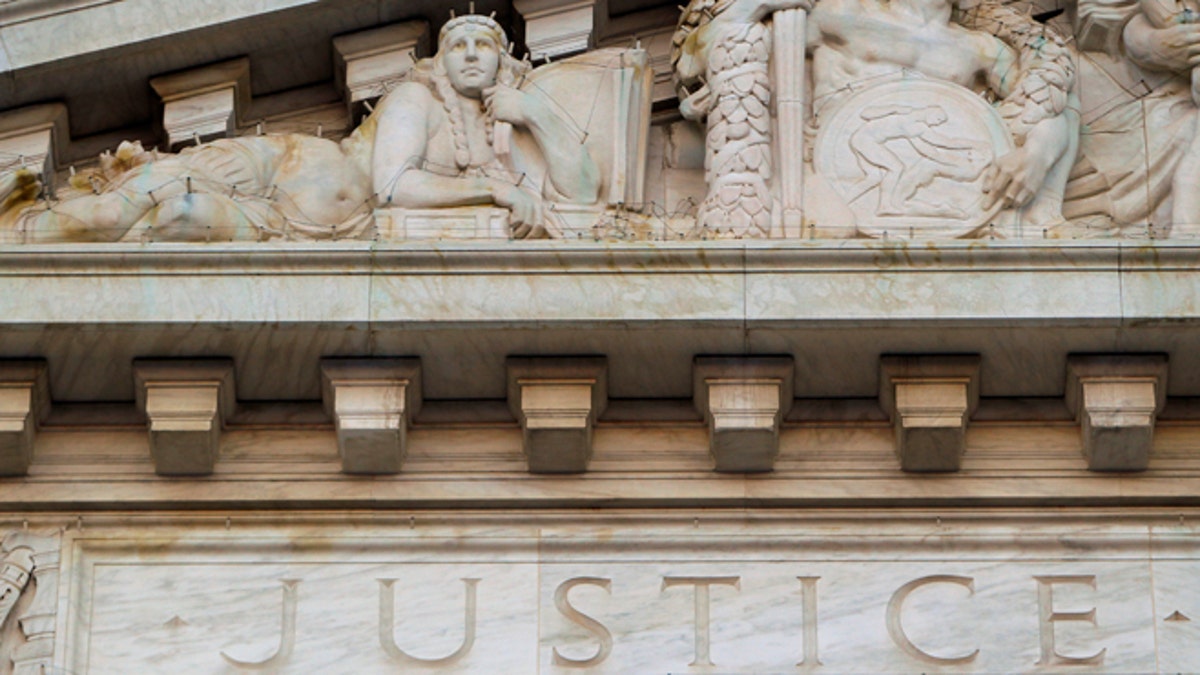
A detail of the United States Supreme Court is seen at dawn in Washington. (Reuters)
Monday’s ruling in the case of Sebelius vs. Hobby Lobby is an important victory for religious liberty for people of all faiths, regardless of what secularists will argue in their criticism of the Supreme Court’s decision. Liberals have tried to obfuscate the real issue in the case by insisting that it was about the merits of employer-mandated healthcare, the propriety of contraception, or the right of a woman to have an abortion.
In reality, Hobby Lobby already provided health care for its employees. Additionally, the company’s insurance covers 16 of the 20 contraceptives required under the HHS mandate.
[pullquote]
Hobby Lobby has objected to providing four of the 20 required contraceptives because they prevent a fertilized egg from implanting in a woman’s womb which the owners contend is tantamount to abortion and violates their religious beliefs.
There is no claim that Hobby Lobby has attempted to prevent women from exercising their constitutional right to obtain abortions -- the company just didn’t want to have to pay for them.
The real issue in this case is the free exercise of religion that is guaranteed by the First Amendment of the Constitution: “Congress shall make no law respecting an establishment of religion or prohibiting the free exercise thereof.” Some might argue that religious freedom only applies to individuals, not corporations such as Hobby Lobby. Yet, as John Samples at the Cato Institute points out, the Constitution clearly indicates whenever rights are limited to individuals by using the words “citizens” or “persons” such as the Fifteenth Amendment which addresses the rights of “citizens” to vote. Corporations can’t vote in a general election, only individual citizens can.
However, the First Amendment does not limit its guarantee of freedom of speech or the free exercise of religion to “citizens” or “persons.” The Supreme Court clearly indicated in the case of Citizens United v. the Federal Election Commission (2010) that the First Amendment's prohibition against “abridging the freedom of speech” applied to corporations just as it does to individuals. The focus of the First Amendment is “ abridging the freedom of speech” regardless of who is doing the speaking.
The same principle that guided the High Court’s decision in the Citizens United case is relevant here. If the guarantee of free speech applies to individuals and corporations, so should the “free exercise of religion” found in the next phrase of the same Amendment -- regardless of who is doing the exercising.
Had the framers of the Constitution desired to limit the free exercise of religion to individuals, they could have done so as they did in another amendments.
If our forefathers had wanted to restrict the sphere of the free exercise of religion to the home, church, or synagogue, they could have done that as well. Yet, the framers purposefully omitted any such restrictions.
If the Supreme Court had ruled against Hobby Lobby Monday and upheld the Obama administration’s argument, they would have been saying, “You are free to be pro-life in your home or church, but on Monday morning when you go to work you have to be pro-abortion.”
People of faith have never accepted a dichotomy between their faith and their work. They believe that their relationship with God and commitment to obeying His commands should impact every area of their lives: their family, their finances, and their vocation. As Solomon wrote in the Old Testament: “In all thy ways acknowledge him [God], and he shall direct thy paths” (Proverbs 3:6).
As tragic as the High Court’s decision was to legalize abortion (Roe v. Wade, 1973), at least that ruling was based on a woman’s choice to abort her child. The Hobby Lobby case was not about an individual’s right to choose to have an abortion, but about government’s right to coerce people opposed to abortions to become complicit in them by funding abortion-inducing drugs or devices.
Does Monday’s ruling mean that any person has an unqualified right to object to any governmental mandate that violates his religious beliefs? No more so than the freedom of speech gives a person the right to yell “fire” in a crowded theatre. Reasonable people realize that no rights are absolute and unqualified.
But the religious persuasion of the owners of Hobby Lobby that abortion is the taking of innocent life is not some fringe belief embraced by a handful of extremists but is a deeply held spiritual conviction of tens of millions of Americans.
Monday, the Supreme Court reaffirmed the right of those Americans to both hold and live by that conviction.
